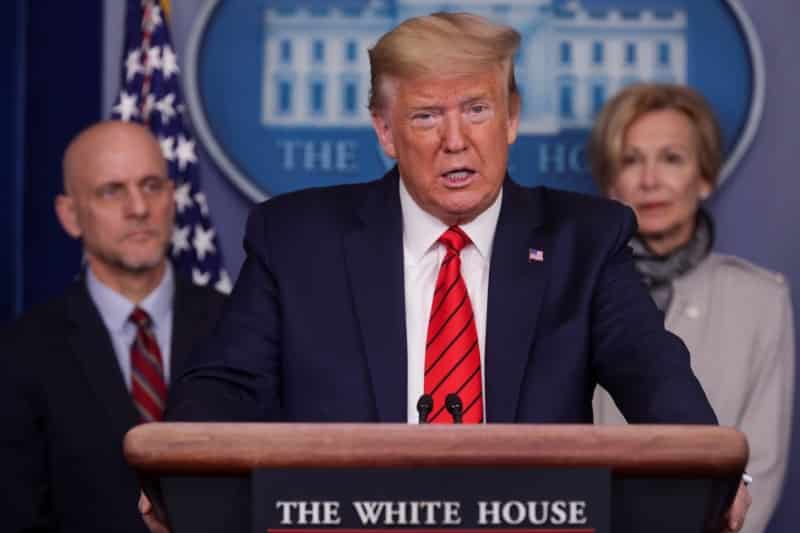The outbreak of the coronavirus has put world leaders on war-footing — or so they tell their citizens.
President Donald Trump has cast himself as a war-time president, marshaling the country’s resources to battle an “invisible enemy.”
Across the western world, governments have taken drastic measures to crack down on the spread of the virus, similar to those that people could expect to see in the wake of a major terrorist attack or armed conflict.
The United States:
In the United States, nearly 100 million Americans are under stay-at-home orders as state governments try to slow the spread of the virus in their states.
While the federal government is relatively limited in its ability to implement nationwide quarantines, federal agencies have tried to take steps that some have argued would limit Americans’ civil rights.
In just one such example, the Justice Department reportedly sought approval to detain defendants indefinitely without a trial during times of emergency.
Rep. Alexandria Ocasio-Cortez (D-N-N.Y.) slammed that request as “abhorrent” and argued, “There is a long history in this country and in other countries of using emergencies as times to really start to encroach upon people’s civil rights. And in fact, this is a time when we need them the absolute most.”
The U.S. is far from alone in such drastic measures, as European governments have imposed new restrictions and granted themselves new powers some have described as “dictatorial.”

France:
France, Italy, Spain, and the United Kingdom have imposed strict nationwide lockdowns. On Tuesday, India’s prime minister announced a 21-day nationwide lockdown for its 1.3 billion citizens.
In a speech addressing the new lockdown, President of France Emmanuel Macron said, “We are at war, in a health war.”
“We are not fighting against an army or against another Nation. But the enemy is there, invisible, elusive, advancing. And that requires our general mobilization,” he added.
Italy:
In Italy, officials fined more than 40,000 people for not abiding by the lockdown order.
To help track how well their citizens are abiding by the lockdowns, cell phone carriers have been handing over location data to health authorities.
Hungary:
Other countries are considering handing even more power to heads of government. Hungary’s parliament is set to consider a bill that would allow prime minister Viktor Orbán the ability to rule by decree — with no set endpoint.
Additionally, Hungarian lawmakers are considering legislation that would imprison people for up to five years for spreading false information.

Israel:
And, in Israel, Prime Minister Benjamin Netanyahu has been accused of capitalizing on the coronavirus outbreak to benefit himself.
Since the outbreak, he directed Israel’s intelligence agency to access phones belonging to people who have tested positive for the coronavirus. Additionally, he shut down the courts — which has postponed Netanyahu’s criminal trial for alleged bribery and fraud.
Additionally, Knesset Speaker Yuli Edelstein said he would not convene the body due to concerns about the coronavirus, which would delay a vote to replace him. It would also, for the time, prevent the opposition from forming a government and choosing a new prime minister.
Russia:
Meanwhile, Russian President Vladimir Putin ordered a vote to be held on April 23 on changes to the country’s constitution that could allow him to remain in power in 2036.
Governments across the world have told their citizens that the new measures are for the public good, but commentators have urged people to ensure that governments do not infringe upon their civil liberties.
Rep. Ocasio-Cortez said that there is no reason people should surrender their civil liberties, “It does not matter how urgent times are. We have to make sure that we retain our civil rights.”
“And there’s no reason for us to be waiving folks’ civil rights in an emergency,” she added.
























